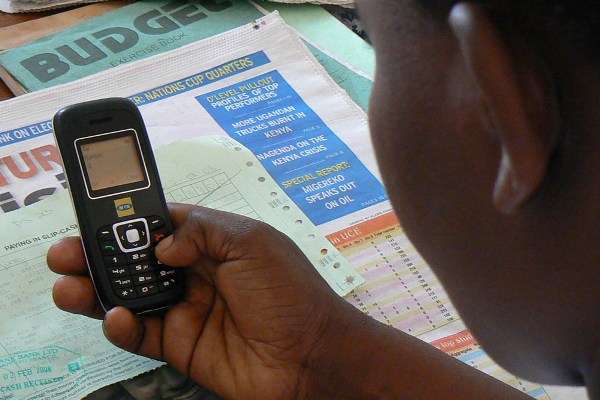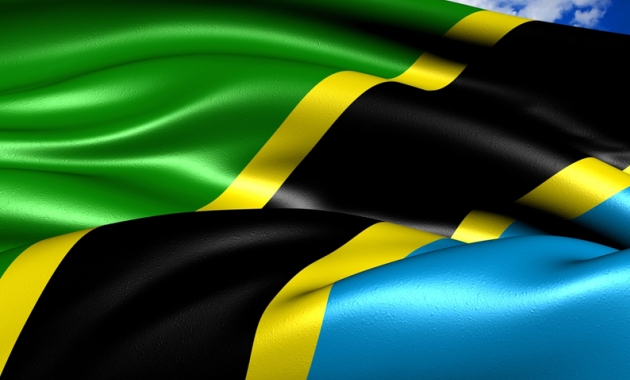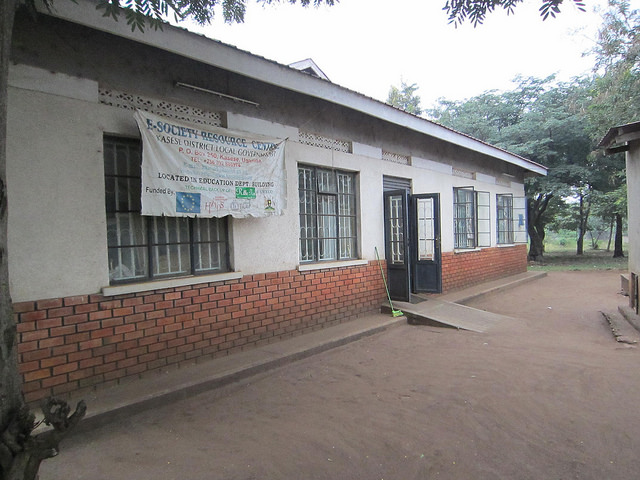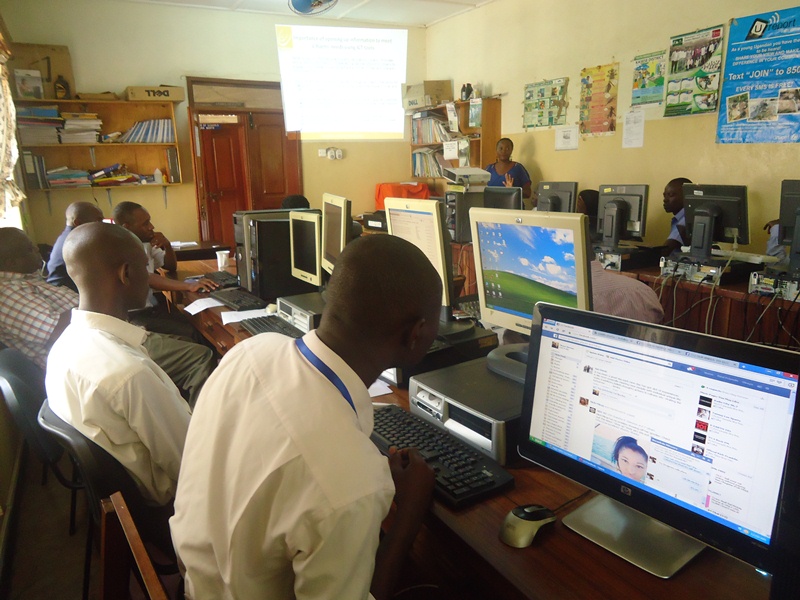By Lillian Nalwoga |
For true democracy to flourish there is need for government transparency, greater access to public information, and inclusion of citizens’ voices in decision-making processes. The use of Information and Communication Technologies (ICT) can aid in increasing awareness and empowering citizens to meaningfully participate in governance processes such as monitoring public services delivery.
The Collaboration on International ICT Policy in East and Southern Africa (CIPESA) has since 2011 implemented the iParticipate Uganda project, which leverages ICT to catalyse civic participation and democracy monitoring in Uganda. While working with grassroots based partners, CIPESA has offered capacity building sessions, and created awareness on how Ugandan citizens can effectively use different ICT tools for social accountability, including monitoring and demanding quality public services.
In 2014, CIPESA worked with the Northern Uganda Media Club (NUMEC) to document service delivery failures as a result of donor aid cuts to the Peace, Recovery and Development Plan (PRDP). The PRDP was launched in 2007 by the government of Uganda in partnership with development partners to revitalise the economy and promote peace-building and reconciliation in post-conflict northern Uganda. However, implementation has faced challenges of corruption and a lack of transparency in its methods of work.

The CIPESA-NUMEC work thus involved promoting dialogue between community members and duty bearers through community debates, radio talk shows and social media on how to improve service delivery for people living in post-conflict communities. Through these engagements, leaders have recognised the need to promote awareness of government programmes among the local communities for better monitoringof service delivery.
For instance, in one of the community debates organised by NUMEC, David Latigo Odongo, the Local Council Chairman of Acet village, Gulu district, acknowledged that lack of sensitisation hampers beneficiaries from monitoring government implemented projects. “They [citizens] do not know who will monitor and take care of PRDP projects, that is why when projects like water boreholes are constructed in the area, people look at it as freebies from either the government or NGOs,” he said.
Further, following the production of a documentary on poor service delivery, Martin Mapenduzi, the Gulu district Chairperson, was prompted to make follow-up on some stalled projects.

Similarly, in western Uganda where CIPESA is working with the eSociety Resource Centre located in Kasese district, another leader acknowledgenes to reach them. eources to health centers were located in semi-urban areas and the journalists lacked enough reseources toed the importance of promoting access to information as a means of enhancing citizens’ monitoring of public service delivery. “Meaningful participation in democratic processes requires informed participants hence the need for increased access to information,” observed John Thawite, the District Information Officer during the e-governance training for local leaders in the district.
This training was aimed at giving district officials skills to update the district website, elibrary and participate in the online district discussion group and Facebook discussions. As a result of this training, and the provision of free ICT services, the district online platforms have been more active and are updated regularly.
The centre serves as a community facility hosted by the Kasese district local government. CIPESA has supported it through the provision of computer equipment, internet subscription and facilitation for the ICT training officer.

At the Busoga Open Source Development Initiative (BROSDI) centre in Mayuge district in eastern Uganda, local communities are being supported by CIPESA in using ICT to monitor education service delivery. This has included training in the use of ICT for civic engagement, access to information and service delivery monitoring. Beneficiaries from one of the training sessions went on to create a project blog to enable users report on different service delivery issues in the district.
In 2014, more than 200 community members benefited from the trainings conducted at our partner centres.
CIPESA also conducted participatory research to document citizens’ knowledge, perceptions and attitudes towards use of ICT tools in monitoring service delivery. Participants in the research acknowledged the need to empower leaders in the use of ICT to respond to citizens’ demands. “Social media will be great when a new breed of users, that is people in leadership, start using it for civic engagement and governance monitoring,” observed a participant in a focus group discussion on citizens’ motivations for using ICT in governance processes.
These grassroots-based engagements, as well as the findings of research exercises on citizens’ and leaders’ use of ICT, access to information and service delivery monitoring will further inform CIPESA’s efforts to close the gap in the awareness and use of technology for enabling democratic processes.
Tanzania Cybercrime Bill Should Safeguard Citizens’ Rights on the Internet
By Juliet Nanfuka |
Tanzania has published a Cybercrime Bill that makes “provisions for criminalizing offences related to computer systems and Information Communication Technologies” and provides for investigation, collection, and use of electronic evidence.
However, the release of the Cybercrime Bill has been met with apprehension by the public due to its overt disregard for press freedom and freedom of expression, the excessive powers granted to police, and the limited protections afforded to ordinary citizens.
On social media, critics have suggested that the timing and content of the Bill were intended to control the media and bloggers ahead of the October 2015 elections. According to the 2014 State of Internet Freedom in Tanzania report, the process of making Cybercrime laws began in 2013 with proposals for the development of the Cyber security Act, Data Protection Act and the Electronic Transacting Act by the end of 2014.
Some of the problematic clauses in the Bill that affect freedom of expression and privacy include Sections 7, 8, 14, 16, 31, 32, 34, 35, 37, 41 and 45.
Section 7 (2) criminalises citizens who receive unauthorized computer data. There should be consideration of content received with intent and without.
Section 8 and 16 provide vague descriptions of phrases including “unauthorized data” and “false information.” In Section 8, one can be charged with data espionage for obtaining “computer data protected against unauthorized access without permission.” The parameters that define unauthorized data need to be indicated as this could have an impact upon investigative journalists and confidentiality of their sources.
In Section 16, on the Publication of false information, the terms “deceptive, misleading and inaccurate information” are subjective and open to abuse by implementers of the law. A clear definition of what constitutes these terms needs to be stipulated in the bill. Moreover, there should be consideration of the intent of those who publish such information, failing which the law would ultimately stifle freedom of expression, including of creative expression.
Also the lack of definition for ‘unauthorised data’ in Section 7 (2b) and “unsolicited messages” in Section 30 makes the bill open to misinterpretation and abuse by state authorities.
On the issue of pornography, the Bill should not proscribe the offence of pornography in general, particularly where not shared in public and where all parties that access it are adults. As is currently framed, Section 14 can be used to abuse individuals’ right to privacy. Besides, a clear definition of pornography which is “lascivious” or “obscene” should be added to the Bill.
Sections 31, 32, 33, 34 and 35 of the bill provide excessive powers to the police for search and seizure of computer systems; and disclosure of data. These sections should provide clear guidelines, safeguards and oversight, including the requirement for a warrant issued by a competent court of law before any search and seize or disclosure of data is to be undertaken.
For section 31, owners of the property or other independent parties should also be witness to such activity by the police for the safety of the equipment and data seized to be guaranteed.
According to Section 32 (1), “where disclosure of data is required for purposes of criminal investigation or the prosecution of an offence, a police officer in charge of a police station or a law enforcement officer of a similar rank may issue an order to anyperson in possession of such data compelling him todisclose such data.” This section needs to be adjusted to include police officers first obtaining a court order before compelling any person to disclose data.
On the disclosure of data in Clause 32 (3) b, there should be a clear indication as to the kind and extent of information a service provider can provide. Service providers should be required to report subscriber information requests in the public domain on a regular basis.
Further, there needs to indicate means of storage, retention period and methods of disposal for data collected or recorded through technical means as provided under Section 35 (b).
In regard to Section 37 (9), where service providers are required to support the installation of forensic tools, for purposes of transparency they should be compelled to provide reports of such requests made to them.
Section 41 provides for that a hosting provider is not liable for information stored at the request of a user of the service, however following orders from any “competent authority” or court, the provider has to take down offending information. The Bill should name the authority or authorities who can issue an order to a hosting provider. The Bill should also indicate what the course of action in the event that a hosting provider does not comply with the order or where the owner of the information wants to contest the take-down order issued by the competent authority.
the take-down order issued by the competent authority.
In regard to “Take down notifications” as provided in Section 45, service providers should notify the persons upon whom a complaint has been lodged, including the reason for the take down.
Also a section compelling service providers to periodically release takedown requests and actions taken to the public should be included.
There is no indication on the rights the users have of their data nor how it is protected once in the hands of the state, thus further putting citizens’ data at risk especially in the absence of a data privacy and protection law.
The Bill was this week tabled in Parliament by Communication, Science and Technology Minister Professor Makame Mbarawa. However, in their discussions Members of Parliament should consider the amendments proposed by civil society so that the country gets a progressive law that strongly supports freedom of expression and the right to privacy.
Access to Information in Tanzania: Laws, Policies and Practice
By Lillian Nalwoga |
Despite the absence of a Right to Information law in Tanzania, advancements in the adoption of Information and Communication technology (ICT) in the country are enabling wider information availability in the public domain.
However, several impediments still stand in the way of citizens’ enjoyment of the right to information as guaranteed by the Constitution.
According to a new report by the Collaboration on International ICT Policy in East and Southern Africa (CIPESA), provisions under various laws and regulations, some as old as 40 years, have been used to restrict access to information.
“ Every person – (a) Has a freedom of opinion and expression of his ideas; (b) Has a right to seek, receive and/or disseminate information regardless of national boundaries; (c) Has the freedom to communicate and a freedom with protection from interference from his communication; and (d) has a right to be informed at all times of various important events of life and activities of the people and also of issues of importance to the society” Article 18 of the Constitution of the United Republic of Tanzania of 1977.
There has been slow progress in drafting an access to information law, with the process stalling since 2006, when the first Freedom of Information Bill was introduced by government. The absence of this law has made it cumbersome for those seeking information from public bodies.
The country is currently undergoing a Constitutional review process, with Articles 29 and 30 of the draft Constitution containing more elaborate and explicit provisions on freedom of expression, freedom of information and media freedom.
Although the proposed Constitution has been commended by civil society as a positive step towards promoting access to information in Tanzania, other existing laws such as The Newspapers Act, 1976, The National Security Act, 1970, The Public Service Act, 2002 and The Public Leadership Code of Ethics Act, 1995, would undermine these freedoms.
The Newspaper Act in particular has been used by law enforcement agencies against independent media and journalists. The Mwanahalisi newspaper was in July 2012 banned indefinitely under Section 25 of the Act, while Mwananchi was suspended for 90 days in September 2013.
Nonetheless, the government has in recent years made various attempts to make more public sector information available and to allow citizens to file queries, opinions, and complaints and provide feedback to public bodies. Notable efforts include the Open government data portal, Tanzania Government Portal, the central government portal, e-Government portal, the publication of reports by the National Audit Office and the Tanzania Extractive Industry Transparency Initiative (TEITI).
However, the CIPESA report notes that the information provided through these efforts is not regularly updated, is often in non-reusable formats and may not necessarily meet the needs of the public in terms of language or nature of information released.
On the positive side, some results can be pointed towards these government efforts in fostering improved government openness and accountability. The move by the Controller and Auditor General (CAG) to release its financial audit reports sparked public debate online and in Parliament over the mismanagement of funds, leading to the resignation and demotion of some public leaders in December 2014.
Meanwhile, civil society advocacy efforts to advance access to information are also on the rise. Initiatives such as that launched by the Media Institute of Southern Africa (MISA) Tanzania in 2010 to assess the most transparent and most secretive government institutions in the country have led to government recognition and acknowledgment of the need for increased transparency.
In addition, the Coalition on the Right to Information (CORI) consisting of 11 member organisations is working towards campaigns and awareness workshops to influence the government to enact the Freedom to Information law.
With a teledensity of 68 phone connections per 100 inhabitants and internet usage estimated at 9.3 million users, more Tanzanians are starting to realise the opportunities ICT offers in promoting transparency and good governance.
The research report recommends the use of a combinations of ICT, such as radio, print media, bulk SMS and automated calls in addition to public notice boards and community meetings to advance access to information in Tanzania.
Other recommendations towards improving freedom of expression, media freedom and access to information include the enactment of the Access to information legislation, amending or repealing outdated laws such as The Newspapers Act of 1976, the Public Leadership Code of Ethics (Declaration of Interests, Assets and Liabilities) Regulations, and the National Security Act of 1970.
There is also the need to safeguard the rights and privacy of internet users through the enactment of cyber laws, including the adoption of a data protection and privacy law.
Further, the report recommends that all government Ministries, Departments and Agencies should make use of available ICT platforms including portals and social media to release more information into the public domain while awareness on use of ICT among citizens to access or seek public information should be promoted by all stakeholders.
Read the full CIPESA study on The Right to Information in Tanzania: Insights on the Laws, Policies and Practices
Citizens’ Use of ICTs in Social Accountability in Uganda’s Kasese District
By Ashnah Kalemera
The eSociety Resource Centre Kasese is a community centre hosted by the Kasese district local government in Western Uganda. It acts as a one stop point for local government officials and community members to access various Information Communication and Technology (ICT) tools and services. The centre provides ICT training programmes, hosts an information library, runs an online discussion group, maintains a news blog and social media accounts (Facebook, Twitter, Youtube). These are all aimed at enhancing citizens’ competence in monitoring government services, promoting accountability, civic participation and good governance in Kasese District.
Since 2011, the Collaboration on International ICT Policy for East and Southern Africa (CIPESA) has provided support to the centre, including computer equipment, internet subscription, centre maintenance and support to an ICT training officer. The support is in the context of CIPESA’s project which seeks to promote citizens’ use of ICTs for improved governance partly through grassroots public ICT access centres. The other partner centres in the project are the Northern Uganda Media Club (NUMEC) and the Busoga Rural Open Source and Development Initiative (BROSDI).
The eSociety centre hosts an average of 250 users per month, mainly local citizens, journalists and local government officials. CIPESA has offered media and district officials training in citizen journalism, geocoding methodology and data collection, information access and dissemination.
During the course of the CIPESA-eSociety partnership in 2014, we conducted a poll survey amongst a random selection of the centre users to assess their capacity and proficiency in demanding for better services, and participation in governance processes.
The results of the poll survey
On the frequency of internet access through mobile (phone and tablet), and desktop/laptop computer at home, work, internet café or the eSociety Centre 34% indicated daily use of the internet and 33% weekly.
When queried on the frequency of using ICTs to engage with leaders, 28% of respondents said they contacted their local leaders at least once a week, while 22% contacted them daily. Another 22% admitted to never contacting their local leaders.
Discussing a governance/service delivery issue was the reason most people (77%) contacted their local leaders. Second was following up on election manifestos (16%). Only 11% contacted their leaders to request for district budget information.
Email was the most commonly used means of contacting leaders at 72%. None of the respondents used text messages to contact their leaders despite widespread mobile phone ownership. Also, with an increasing number of people, including leaders, using social media, the platform was only used by 11% of respondents to contact leaders.
Table 1: ICT tools used to contact local leaders
| Tool | Yes | No |
| Sending an email | 72% | 28% |
| Using social media (Facebook, Twitter) | 11% | 89% |
| Telephone call | 50% | 50% |
| Text message | 0 | 100% |
| Other | Physically/ Word of mouth | |
For 89% of respondents, drugs shortages in local hospitals/health centres was the most pressing community need. This was followed by corruption and poor road infrastructure.
Table 2: Pressing service delivery issues in Kasese district
| Issue | Percentage of respondents |
| Drugs shortages in hospitals/health centres | 89% |
| Corrupt officials | 83% |
| Poor state of roads | 83% |
| Lack of clean water | 78% |
| Poor state of hospitals (facilities and standards) | 72% |
| Low staff levels (doctors and teachers) | 72% |
| Poor state of schools (facilities) | 67% |
Challenges to using ICTs
The most widely cited challenge to the use of ICT tools in accessing service delivery information in the local community was the high cost of accessing and using tools – cited by 78% of survey participants. Another common challenge was the lack of immediate feedback from the responsible officials (17%). Other challenges cited by respondents included unreliable electricity supply, poor network coverage (voice and data), and the long distances that citizens have to travel to access ICT centres/services.
The poll results indicate a good level of citizen engagement and awareness of service delivery issues in Kasese District. They further show that free ICT services provision for the centre’s users has enhanced service delivery monitoring and citizen participation in governance through ICTs in Kasese district. However, there remains need to continue identifying emerging ICT participative practices and needs at the centre, and building citizens’ capacity to effectively engage with their leaders for improved service delivery and governance. There is also the need for more leaders to more proactively engage with the ICT tools that citizens are increasingly utilising to reach them.
CIPESA’s iParticipate Uganda project is part of the ICT4Democracy in East Africa Network which is supported by the Swedish Program for ICT in Developing Regions (Spider) and the Swedish International Development Cooperation Agency (Sida).
Featured image from: http://rwecovoice.blogspot.com/2010_11_21_archive.html
Local leaders in Kasese District Trained in e-Governance
This month, the Collaboration on International ICT Policy in East and Southern Africa (CIPESA) and the E-Society Resource Centre Kasese trained local leaders in Kasese district in the use of ICTs for improved governance and service delivery. During the March 20-21 2014 workshop, local leaders of the western Uganda district were also trained in using ICTs for information sharing and promoting citizen participation.
Speaking at the workshop, District Information Officer John Thawite urged local leaders to break away from the culture of secrecy and work in accordance with the 2005 Uganda Access to Information Act. “Meaningful participation in democratic processes requires informed participants hence the need for increased access to information,” he said.
However, Mr. Thawite noted some challenges to better access to information: poor facilitation for information officers, lack of ICT tools to process information requests, the Official Secrets Act of 1964 which bars public servants from releasing certain information, and poor coordination of information systems between departments.
During introductory sessions, participants were introduced to the basic elements of computer use, the internet and information security. Later, they were introduced to the concept of e-governance and its role in improving service delivery. The training included an interaction with the district e-government tools such as the district portal (www.kasese.go.ug), district discussion group (https://dgroups.org/iicd/kasese), E-library for district e-resources (https://elibrary.kasese.go.ug) and the district news portal (https://kasesenews.blogspot.com/).
The workshop also sought to enhance the leaders’ capability to engage with citizens through social media, and illustrated how this engagement could contribute to improved services delivery. According to Alexa.com, Facebook, Twitter, blog post and youtube are among the top ten accessed websites in Uganda and their potential in catalysing citizen participation in governance was emphasised.
Leaders were further encouraged to use the Rwenzururu facebook group (https://www.facebook.com/groups/nokasesesplit/) created in 2012 by community members in Kasese during a CIPESA citizen journalism training to discuss prevailing issues in the region..
Participants welcomed the training with one saying that he would henceforth be able to get access more information about various operations of the government through the various e-governance platforms shared. Another participant asked the e-society Resource Centre to work with heads of departments so that they always send their budgets, minutes of meetings, work plans and other communication to the e-platforms.
CIPESA has since 2011 spearheaded the iParticipate Uganda project. Through grassroots based ICT access centres in Eastern, Western and Northern Uganda, CIPESA creates awareness and builds the capacity and skills of citizens, media and local government to leverage ICTs to catalyse civic participation, democracy monitoring and access to information in Uganda. The E-society Resource Center Kasese is CIPESA’s western region partner. The centre provides support, promotes ICT literacy and the use of ICT for transparency in the Kasese local government.
Article complied by Mr. Samuel Mumbere – E-Society Resource Centre Kasese and Ms. Lillian Nalwoga – CIPESA





